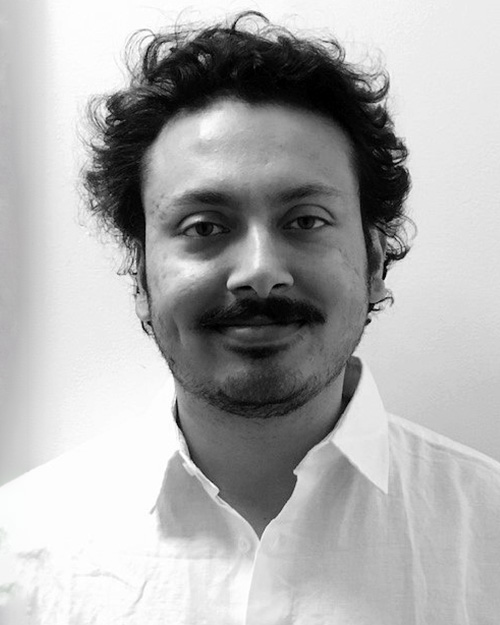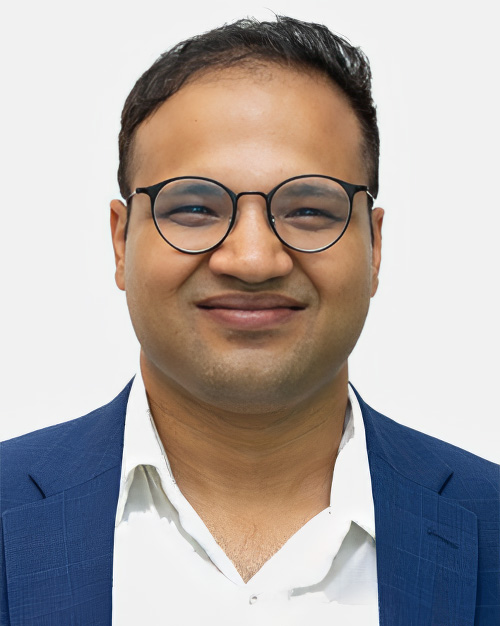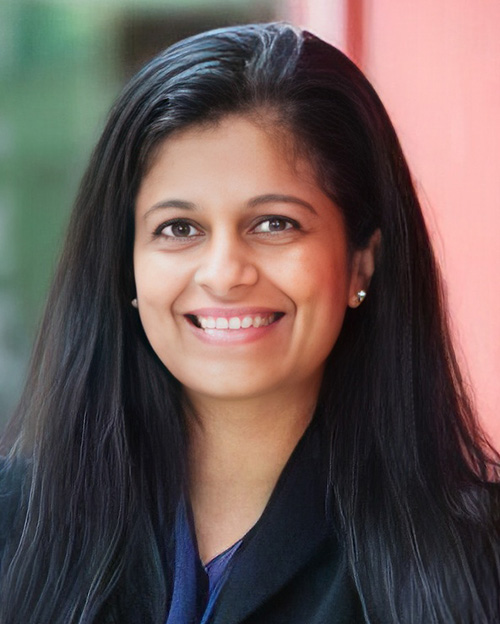The conference provides a forum for leading researchers and experts in the areas of international security, subnational governance, and sustainable development in India to discuss challenges and opportunities in the context of India’s growth. The conference is free and open to the public and UCF students, faculty, and staff as well as the community are invited.
The India Center is honored to welcome Richard Rossow, Senior Adviser and Chair in U.S.-India Policy Studies at the Center for Strategic and International Studies as the keynote speaker.
The event is hosted by the UCF India Center and co-sponsored by the College of Graduate Studies; the College of Sciences; the School of Politics, Security, and International Affairs; the Center for Global Economic and Environmental Opportunity; Global Perspectives and International Initiatives.
Date: Friday, April 12, 2024
Time: 9:00 a.m. – 4:00 p.m.
Location: John C. Hitt Library, Room 402
Agenda
Panel 1: India and International Security
Time: 9:15 a.m. – 10:45 a.m.
Moderator: Nikola Mirilovic, Associate Professor, School of Politics, Security, and International Affairs and Interim Director, Kurdish Political Studies Program
Panelists:
Christopher Clary, Department of Political Science, University of Albany, SUNY, and Nonresident Fellow, Stimson Center, South Asia Program
Title: Strategic Calculations and Public Opinion in Interstate Crisis: Evidence from a Survey Experiment in India
Yogesh Joshi, Institute of South Asian Studies, National University of Singapore and Global Policy Fellow at the Wilson Center, Washington, D.C.
Title: India’s Approach to Use of Force in International Politics: Before and After Modi
Mohamed Zeeshan, India Policy Initiative, The Carter Center
Title: The Centrality of Democratic Values to India’s Rise as an Emerging Power
Panel 2: Subnational Governance in India
Time: 11:00 a.m. – 12:30 p.m.
Moderator: Andrew Sullivan, Assistant Professor, School of Public Administration, College of Community Innovation and Education
Panelists:
Aditya Dasgupta, Department of Political Science, University of California, Merced
Title: The Political Economy of Bureaucratic Assignments: Micromotives and Macrobehavior in India’s Land Administration
Tanu Kumar, Division of Politics and Economics, Claremont Graduate University
Title: Democratizing Bureaucracy: Citizen Claim-Making and Local Government Responsiveness in Rural India
Anjali Thomas, Sam Nunn School of International Affairs, Georgia Institute of Technology
Title: Getting on the Grid: The Politics of Public Service Formalization in Urban India
Luncheon and Keynote
Time: 12:30 p.m. – 2:00 p.m.
Moderator: James Bacchus, Distinguished University Professor of Global Affairs and Director of the Center for Global Economic and Environmental Opportunity, School of Politics, Security, and International Affairs
Richard Rossow, Senior Adviser and Chair in U.S.-India Policy Studies at the Center for Strategic and International Studies (CSIS)
Title: The Promise of a U.S.-India Partnership
Panel 3: Sustainable Development in India
Time: 2:00 p.m. – 3:30 p.m.
Moderator: Jacopo Baggio, Associate Professor, School of Politics, Security, and International Affairs
Panelists:
Vyoma Jha, India Program, Natural Resources Defense Council (NRDC)
Title: From India to the World: A New Paradigm for Sustainability
Praveen Kumar, School of Social Work, Boston College
Title: Unpacking Adoption and Sustained Use of Social Policy Interventions: Cases of PMUY and PMJDY
Anmol Soni, Department of Public Administration, Louisiana State University
Title: Facilitating Energy Transitions in Rural India: A Governance and Design Perspective
Speaker Biographies

Christopher Clary is an Associate Professor of political science at the University at Albany, State University of New York, and a Nonresident Fellow with the Stimson Center’s South Asia program. Previously, he held fellowships at Brown University, Harvard University, the RAND Corporation, and the Council on Foreign Relations. Clary also served as country director for South Asian affairs in the Office of the Secretary of Defense, a research associate at the U.S. Naval Postgraduate School, and a research assistant at the Henry L. Stimson Center. He received his PhD in Political Science from MIT.

Aditya Dasgupta is Assistant Professor of political science and director of the Political Economy of Agriculture and Rural Societies (PEARS) lab at the University of California, Merced. His research is on comparative political and economic development, with a focus on technology, governance, democracy, and agriculture. He holds a Ph.D. in political science from Harvard University.

Vyoma Jha is a Senior Advocate for the India Program at Natural Resources Defense Council (NRDC). She received her doctorate degree in law and political economy from Stanford University, and holds law degrees from Stanford Law School, New York University School of Law, and National Law University, Jodhpur. She writes and teaches on issues of climate change law and policy, international economic law and its linkages with climate change, and India’s energy foreign policy. She is the author of The Making of the International Solar Alliance: India’s Moment in the Sun (Oxford University Press, 2023).

Yogesh Joshi is a Research Fellow at the Institute of South Asian Studies, National University of Singapore, and a Global Policy fellow at the Wilson Center, Washington, D.C. His research focuses on international security of the Indo-Pacific and Southern Asia, with an emphasis on regional geopolitics, military power, and approach to the use of force in international relations. Earlier, he was a MacArthur and Stanton Nuclear Postdoctoral Fellow at the Center for International Security and Cooperation, Stanford University. He holds a Doctorate in International Politics from Jawaharlal Nehru University, New Delhi. He is co-author of three books: India and Nuclear Asia: Forces Doctrines and Dangers (Georgetown University Press, 2018), Asia’s Emerging Balance of Power: The US ‘Pivot’ and Indian Foreign Policy (Palgrave Macmillan, 2016) and India’s Nuclear Policy: A Short Introduction (Oxford University Press, 2018).

Praveen Kumar is an Associate Professor at the Boston College School of Social Work. He is a faculty affiliate at the Global Public Health and Common Good program of Boston College. His research focuses on the human dimensions of climate and environment to advance climate and environmental justice, particularly in South Asia and Sub-Saharan Africa. He examines policies and program interventions that address the health and well-being of marginalized communities vulnerable to climate and environmental risks, with a focus on understanding the causes and consequences of household energy access. He was the NIH Climate Change and Health Scholar for the year 2023, wherein he contributed to strengthening the strategic initiative on climate change and public health of the NIH.

Tanu Kumar is an Assistant Professor in the Division of Politics and Economics at Claremont Graduate University. She studies how everyday citizens can improve governance in India with a focus on when they will make demands along with the conditions under which government officials will respond. Her research relies on field studies, primary data collection, qualitative methods, and creative strategies for causal inference to shed light on the potential for social accountability in contexts where existing research would suggest its prospects seem weak. She holds a Ph.D. in Political Science from the University of California, Berkeley. She has been named a Susan Clarke Young Scholar by APSA’s Urban and Local Politics Section.

Rick Rossow holds the Chair in U.S.-India Policy Studies at the Center for Strategic and International Studies (CSIS). In this role, he helps promote greater business and economic engagement between the two countries, with a unique focus on tracking and engaging Indian states. He also leads the India+South Asia practice at the advisory firm McLarty Associates. He has been working on U.S.-India relations for over 25 years. Earlier, he was an international business executive at New York Life Insurance Company, and the deputy director of the U.S.-India Business Council. He has traveled to India well over 100 times.

Anmol Soni is an Assistant Professor in the Department of Public Administration at Louisiana State University’s E.J. Ourso College of Business. Her research interests include Energy and Environmental Policy, Local Environmental Action, Energy Access and Security, International Development, Policy Analysis. She received her PhD in Public Policy from Georgia State University and Georgia Institute of Technology.

Anjali Thomas is an Associate Professor in the Sam Nunn School of International Affairs at Georgia Tech (Georgia Institute of Technology) in Atlanta, Georgia. She specializes in comparative politics and political economy with a focus on India. Her research focuses on distributive politics, the politics of public service provision, multi-level governance, and gender disparities. Anjali is the author of “Democratization from Above: The Logic of Local Democracy in the Developing World” published with Cambridge University Press (2016). Her recent articles have been published in The American Journal of Political Science), The British Journal of Political Science, Comparative Political Studies and Political Research Quarterly.

Mohamed Zeeshan is a Research Officer for the India Policy Initiative at The Carter Center. He is author of Flying Blind: India’s Quest for Global Leadership (Penguin 2021). He presently holds multiple positions, including foreign affairs analyst, researcher, and columnist. He is staff writer on South Asia for The Diplomat, and columnist for Deccan Herald, South China Morning Post, and other dailies around the world. He previously worked with the global consulting firm Kearney, advised governments in the Middle East on issues of economic reform and foreign policy, and served with the Indian delegation to the United Nations in New York.
